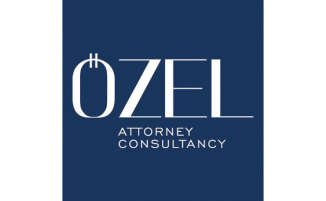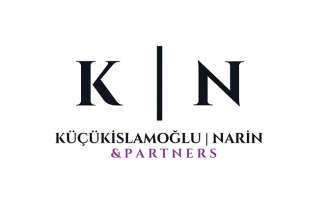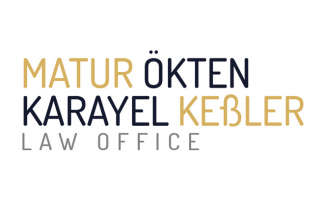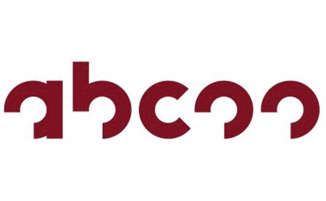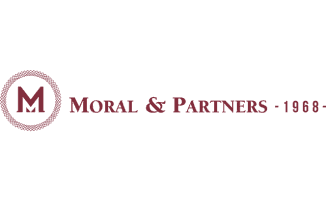1. Given Turkey’s recent economic problems, how is this affecting your clients and how can you help mitigate the risks?
Turkey has been going through a period of economic uncertainty since the summer of 2018, when a number of factors led to a sharp devaluation of the Turkish lira against major foreign currencies and a surge in inflation. These volatile economic conditions have affected Turkish companies’ profits as well as their ability to serve their foreign currency debt, resulting in the need for debt restructuring and corporate divestments, especially within large conglomerates. This also led to the issuance of legislation to protect the currency, imposing that certain contracts be denominated in Turkish lira or delimiting the circumstances in which Turkish companies can borrow in foreign currency. The ambitious economic agenda of the Turkish government, however, is expected to put Turkey back on a path of sustainable growth.
We help our clients adapt to the new environment by overhauling their contracts and credit arrangements in order to comply with the new legislation. When acting for foreign players looking to invest in Turkey, we advise on adequate provisions in the transaction documents meant to anticipate the impact volatile economic conditions could have on the agreed deal terms. These may address a variety of issues, such as currency fluctuations between signing and closing, the target’s need for recapitalisation to remain in line with statutory equity ratios, or the necessity to redesign the target’s debt structure.
The current conditions in Turkey also bring significant opportunities for those foreign investors who continue to see the country’s mid-to-long-term business case, with a sizeable growth potential compared to more developed countries in many yet-underpenetrated sectors of the economy. Given Turkey’s history of economic downturns followed by spectacular rebounds, some investment advisers also see the current period as offering attractive valuations for buyers with the prospect of sizeable returns when the market recovers.
2. How has this affected the flow of foreign direct investment, the volume of deals and dispute resolution?
The current economic climate has led foreign investors to be more cautious with their investment plans and the factors upon which they build their business case. We see a significant slowdown in PE investment, since the current market conditions will often not match their pre-defined investment criteria. Strategic investors, on the other hand, continue to see the country’s opportunities, all the more so when it comes to target companies with sales skewed towards exports, which benefit from higher revenue against lower costs as a result of the currency devaluation. Restructuring plans within major Turkish conglomerates can also put on the market potentially attractive targets, which would not otherwise have gone up for sale.
Investors will, however, proceed with caution. Combined with the fact that sellers’ price expectations can initially remain relatively high, this results in longer transaction processes compared to previous years, with negotiations sometimes dragging on for months or being halted several times before the parties finally reach an agreement.
‘The ambitious economic agenda of the Turkish government is expected to put Turkey back on a path of sustainable growth.’
3. Which practice areas are the biggest originators of work and why?
Corporate/M&A and dispute resolution remain the biggest originators of work, with M&A in particular holding itself at a fairly satisfactory level in view of current market uncertainties, as the practice is fed by large divestments and strategic opportunities. We do, however, see significant growth in debt restructuring and insolvency, compliance and investigations, as well as banking and finance work, all of which are driven by the impact of current economic conditions and the market players’ increased caution when proceeding with investments.
4. Do you anticipate a resurgence in infrastructure/project finance?
Although there has been a slowdown in infrastructure project tenders initiated by the government, we expect new tenders to be launched in the transport, healthcare and education sectors in the coming years. Some of these transactions will require sizeable project financing. Turkey has also set itself ambitious renewable energy utilisation targets, which will boost project finance activities in the country.
5. As a global downturn is increasingly possible, how well are Turkish companies positioned?
The Turkish economy remains strongly dependent on exports and foreign direct investment and the country would undoubtedly be affected by a global downturn. The previous major downturn in 2008 had shown that while Turkey’s banking system was at the time comparatively more robust than in Western economies due to strong capitalisation rules, the country was eventually affected by the crisis when the slowdown in its major export markets reverberated on the real economy.
Although the present situation may be riskier, with Turkey’s banking system already under tension due to the recent currency crisis, the Turkish economy’s resilience is noteworthy. Turkish companies may still benefit from a competitive advantage with a young, skilled and affordable workforce, and the growing ability they have demonstrated in recent years to export their strengths and know-how to new markets, such as African countries for the construction sector, and hedge their exposure to the local economy with investments abroad.
6. The Turkish central bank’s drive to reboot growth, slashing benchmark rates by 7.5%, and offering incentives for banks to offer credit – what impact is that having in bank advisory work?
Considering the liquidity of Turkish banks, we expect the lower interest rates to promote growth in the Turkish lending market across all segments, including retail and wholesale. The lower interest rates will also promote the refinancing market, especially in infrastructure projects. This being said, the lending landscape in Turkey is already quite busy with ECA [export credit agency] loans, trade finance, IFI [international financial institution] loans, sovereign borrowings and FI transactions.
7. Which sectors are of most interest to M&A/private equity investors?
Investors continue to be consistently attracted to the industrial and consumer goods sectors, as well as transportation and logistics. We also see foreign players increasingly seeking opportunities to invest in Turkish companies with a focus on emerging technologies, especially payment systems and communications technology, and believe this will be a key area of investment in upcoming years. Finally, there have been high-value entries in the Turkish financial sector from Middle East corporate groups, as well as some opportunities in the insurance sector, where a number of sizeable bancassurance arrangements will come up for renegotiation or new tender in upcoming years.
‘We see foreign players increasingly seeking opportunities to invest in Turkish companies with a focus on emerging technologies.’
8. As the Turkish energy sector is being rapidly reshaped, what opportunities does this provide?
Turkey is keen to bring a significant increase in its use of renewable energy in the coming years. These efforts will particularly materialise in the wind sector. The government is expected to announce a number of renewable energy resource zone tenders in the near future. These tenders should be smaller in size than the previous ones, meaning that the Turkish energy sector will offer more opportunities to a diversified group of investors.
9. What impact is there for Turkish companies complying with global regulations and new national regulations, eg the Turkish Data Protection Law, modelled on GDPR?
Given the significance of foreign investment in Turkey, many Turkish companies are well acquainted with the need to comply with global regulations, be it in the field of anti-bribery and corruption (especially FCPA [Foreign Corrupt Practices Act]/UKBA [UK Bribery Act]), international sanctions, data protection, corporate governance or financial reporting standards. Turkish companies with a foreign shareholder, or even a major foreign supplier, will often already apply global compliance standards in a number of areas.
The ongoing harmonisation of Turkish legislation with global regulatory standards is largely supported by the government as a tool to make the country an ever-more attractive destination for foreign investment and is generally welcome by local companies with the ambition to attract new investors despite the added burden on their internal processes.
The Turkish Data Protection Law provides a good example of this trend. Introduced in 2016, the new piece of legislation replaced hitherto scattered and little-enforced privacy regulations with a full-fledged data protection regime, giving companies two years to audit their data processing practices – in many cases for the very first time – and put them in compliance with the new law. This called for an abrupt change in culture, but as in most emerging markets corporates have been quick to adapt. While the legislator had deliberately opted to mirror the Turkish Data Protection Law on the 1995 EU Directive, rather than GDPR, in order to soften the impact of the new regime, we see that many Turkish companies have chosen to transition directly to the higher GDPR standards in order to boost their ability to do business on the international stage.
For more information, please contact:
Serdar Paksoy, managing and senior partner
Paksoy
Orjin Maslak
Eski Büyükdere Caddesi
No:27 K:11 Maslak 34485
Istanbul
Turkey
T: +90 212 366 4757
E: spaksoy@paksoy.av.tr
www.paksoy.av.tr










